2021 Congress Program Announced
December 16, 2020 in Abstracts of Conference Papers, Announcements, Business Meeting, Conference, Conference Announcement, Events, Index of Medieval Art, International Congress on Medieval Studies, Kalamazoo, Societas Magica
Activities of the
Research Group on Manuscript Evidence
At the
56th International Congress on Medieval Studies
(10–15 May 2021)
Following the Call for Papers
(due by 15 September 2020)
and the Selection of Papers (due by 1 October 2020)
We announce the Program for our Sessions
#kzoo2021 / #kazoo2021
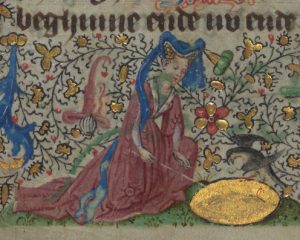
Baltimore, The Walters Art Museum, MS W.782, folio 15r. Van Alphen Hours. Dutch Book of Hours. Image via Creative Commons.
Following the 2021 Congress Call for Papers, the Selection of proposed Papers, and the submission of the Programs for our Sessions to the Congress Committee (see our 2021 Congress Planning), we announce the Program for our Sessions and our other Activities for the 2021 ICMS Congress.
All activities at the Congress are scheduled to take place only “virtually”. For such virtual plans, see the Congress page of the Medieval Institute.
Watch this space. We await instructions from the Congress Committee regarding the revised approach to Sessions.
Note that, once the Committee announced that the Congress would have to go ‘virtual’, all 3 co-sponsors for our planned Reception agreed that it would make sense to wait for such an event until some suitable occasion in person. However, we continue to plan for all 5 Sessions and our Open Business Meeting.
Update on 26 March 2021:
The Program of the Congress is now available. For information about the Congress, see its website.
*****
In a Nutshell
Open Business Meeting: All are Welcome
Thursday, 13 May at 12:00 pm EDT.
- 2021 Congress Program, page 99.
Sessions
Seal the Real, I–II
Congress Sessions 259 and 279, Virtually on
Thursday, 13 May at 11:00 am EDT and at 1:00 pm EDT
- 2021 Congress Program, pages 92–93 and 100–101.
Medieval Magic in Theory:
Prologues to Learned Texts of Magic
Congress Session 103, Virtually on
Tuesday, 11 May at 11:00 am EDT
- 2021 Congress Program, pages 38–39.
Revealing the Unknown, Parts I–II
Congress Sessions 181 and 201, Virtually on
Wednesday, 12 May at 11:00 am and 1:00 pm EDT
- 2021 Congress Program, pages 66 and 73.
Details follow here.
2020>2021
After the cancellation of the 2020 Congress (see our 2020 Congress Program Announced), preparations for the 2021 Congress permitted re-submitting the sessions which had been designed to take place in May 2020. By popular request, we performed that re-submission for all 5 Sessions. With approval by the Congress Committee, these Sessions joined the listings of all sessions on call on the Congress website and formed our own 2021 Congress Call for Papers.
New for the 2021 Congress, all proposals (or re-proposals from 2020) had to be made through a Confex system, as directed on the Congress website. The new system imposed teething problems for prospective participants, Session Organizers, and Sponsors. The challenges emerged in several forms at various stages, including close to the several deadlines for submission of proposals for Sessions (1 June), receipt of proposals for their Papers (15 September), and submission of our choices for their Programs (1 October), along with the bookings for our Business Meeting and Reception. We thank Elizabeth Teviotdale of the Medieval Institute for direct help at various stages.
Then we could announce our 2021 Congress Planning in Progress, while waiting to for approval from the Congress Committee for our proposed Programs and the scheduling of the Sessions.
Now, we announce the Programs of our Sessions and publish the Abstracts of their Papers. (With updates as appropriate for the Abstracts which had been prepared for the 2020 Congress.) The Abstracts are accessible both through this Announcement (You are Here) and through the Indexes of published Abstracts by Year and by Author.
We thank our Participants and Organizers for their contributions. We look forward to the Sessions, and offer the Abstracts of Papers as a foretaste of the menu of discussion.
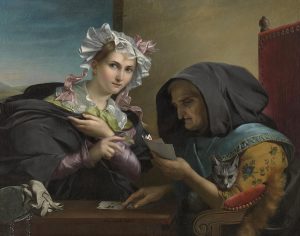
Adèle Kindt (1804–1884), The Fortune Teller (circa 1835). Antwerp, Koninklijk Museum voor Schone Kunsten. Image via Wikimedia Commons.
The 2021 Congress
1) Sessions
For the 2021 Congress, we present the same 5 Sessions as those planned for the 2020 Congress, with a few changes (including 1 revised Session Title and 3 new Papers). The Sessions comprise 2 Sessions sponsored by the Research Group on Manuscript Evidence and 3 Sessions co-sponsored with the Societas Magica, in the 17th year of this co-sponsorship at the International Congress on Medieval Studies.
Our pair of Sponsored Sessions dedicated to “Seal the Real I–II” remain as before. The pair of co-sponsored Sessions dedicated to “Revealing the Unknown I–II” have a few changes in the line-up. One Session has a revised title (“Medieval Magic in Theory: Prologues in Medieval Texts of Magic, Astrology, and Prophecy”). For 2021, the Societas Magica has agreed also to co-sponsor this Session, adapting to changing opportunities.
The 2021 Congress will be the 17th year of our co-sponsorship with the Societas Magica, in a constantly constructive partnership of friends, students, and colleagues.
2) Reception Postponed
We had planned for a Reception co-sponsored with the Index of Medieval Art at Princeton University (formerly the Index of Christian Art) and the Societas Magica, but we agree to wait for some occasion when such a gathering might take place in person.
Glimpses of our co-sponsored Receptions at the Congress appear in the souvenirs of our Celebrations and in the Reports for the individual Congresses
3) Business Meeting
Like the 2015–2020 Congresses, we plan for an Open Business Meeting.
Responding to changes, the Agenda for the 2021 Business Meeting adopts a new approach. Already, the revised 2020 Agenda for the postponed 2020 Business Meeting takes into account the changes for that year. The Agenda for 2021 offers scope for renewal.
This year, we continue to offer the 1-page Agenda in customary form, encapsulating a set of Reports about Activities in progress, accomplished, planned, and desired. Earlier years call it the Agenda, Reports included. This year, we call it the Agenda Report. To it, we add another 1-page list of items which focus upon the Agenda for the Business Meeting itself.
Their 1-page statements serve as concise Reports for our Activities, Plans, and Desiderata. Some of the Agendas over the years stand among the Top 5 Most Popular Downloads on our site.
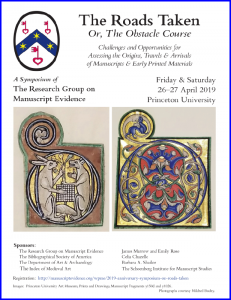 The most popular downloads still remain our copyright and FREE multilingual digital font Bembino, and some Booklets from our Symposia and Colloquia. So far, these FREE “best sellers” include:
The most popular downloads still remain our copyright and FREE multilingual digital font Bembino, and some Booklets from our Symposia and Colloquia. So far, these FREE “best sellers” include:
- From Cover to Cover (2020 Spring Symposium as planned)
- The Roads Taken (2019 Anniversary Symposium)
- Words & Deeds (2016 Symposium)
- When the Dust Has Settled (2014 Colloquium)
- Crusading and the Byzantine Legacy and The Medieval Balkans as Mirror (two of our 2016 Congress Sessions)
- Predicting the Past (one of our 2015 Congress Sessions).
These publications, like most of our Publications, are FREE, but we welcome donations, both in funds and in kind, for our nonprofit mission, with the option of tax-deduction for your Donations.
We look forward to your contributions and participation.
2021 Congress Activities
Our Business Meeting at the Congress
This year, held Virtually, the Meeting is scheduled for
Thursday, 13 May at 12:00 pm EDT.
- 2021 Congress Program, page 99.
Our Sessions
Our events at the Congress, as always, are designed to represent, to explore, to promote, to celebrate, and to advance aspects of our shared range of interests, fields of study, subject matter, and collaboration between younger and established scholars, teachers, and others, in multiple centers.
Again we co-sponsor Sessions with the Societas Magica (3 Sessions this year). It will be the 17th year of this co-sponsorship.
5 Sessions
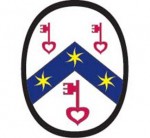 I. Sponsored by the Research Group on Manuscript Evidence
I. Sponsored by the Research Group on Manuscript Evidence
Sessions 1–2
1–2. Seal the Real: Documentary Records, Seals & Authentications
Congress Sessions 259 and 279
Thursday, 13 May at 11:00 am EDT and at 1:00 pm EDT
Between them we will hold our Business Meeting
Thursday, 13 May at 12:00 pm EDT.
- 2021 Congress Program, pages 92–93 and 100–101.
[Note: Our plans for these 2021 Sessions correspond to the plans for the 2020 Congress.]
Organizer
Mildred Budny (Research Group on Manuscript Evidence)
director@manuscriptevidence.org

Judgment of Arbitration by Philip I, Count of Savoy, of 28 May 1275
with Brown Wax Seal
and with Docketing in French. Photograph by Mildred Budny.
These sessions explore the presentation and attestation of documentary records in the medieval and early modern periods, in the long transition to the modern custom of signatures as autographs — as distinct (partly) from earlier ‘signatures’ often made by proxy, whether by cross-signs, names inscribed by others on behalf of the signatory, personal or official seals, or other forms. The fields of consideration include forgeries (‘signatures’, seals, and questionable documents), reported records of documents perhaps otherwise lost (as in cartularies, chronicles, and other narratives), and the occasional preservation of fingerprints upon the records themselves.
The time-honored human determination to establish recognized — that is, effective — modes of authenticating intentions and actions by individuals and institutions alike underpins the historical transmission (or disruption, willful and otherwise) of formal records of agreements, sales, transfers, decisions over grievances and feuds, and other impactful official arrangements across the centuries. Examining case studies for this session, we encourage multiple approaches, subject matters, and methodologies for analyzing the strategies adopted (successfully or otherwise) in the pursuit of such a quest for authentication.
The desire effectively to express identity and authenticity as a matter of record may well resonate with many participants. The Session considers aspects of the historical traditions, improvisations, inventions, and (it may be) occasional failures of earlier centuries in such a quest. Perchance we might learn instructively from the past.
Part I: Signed & Sealed
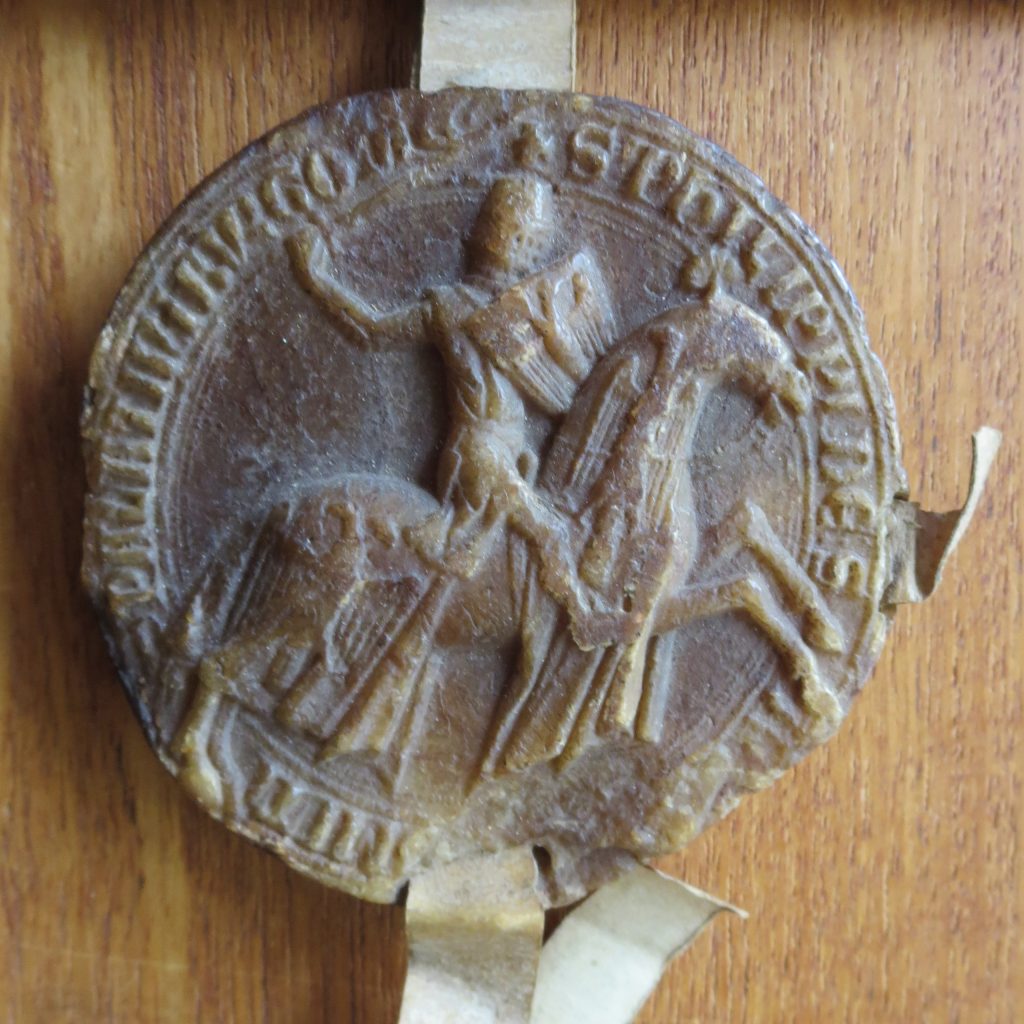
Equestrian Wax Seal of Philip I, Count of Savoy,
Affixed to his Judgment of Abritration, 28 May 1275. Photograph by Mildred Budny.
Presider
Derek Shank
Presenters
Laura J. Whatley (Fine Arts Department, Auburn University — Montgomery)
“Sealing the Historical Record in Matthew Paris’s Chronica Maiora”
John McEwan (Center for Medieval and Renaissance Studies, Saint Louis University)
“Antiquity Revisited: Ancient Gems in Medieval English Seals”
James Eric Ensley (English Department, Yale University)
“Signed, Sealed, Delivered? Hoccleve’s Ambiguous Seal Poetics”
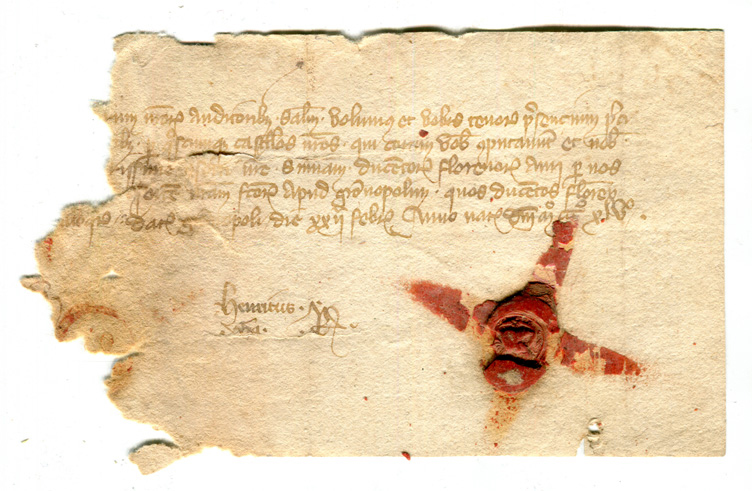
Private Collection. Document of 13 February 1345 (Old Style) from Grenoble in 5 lines on paper, dated 22 February 1345 (Old Style), with red wax seal.
Part II: × Marks the Spot
Presider
Derek Shank (Research Group on Manuscript Evidence)
Presenters
Michael F. Webb (Independent Scholar, Detroit, Michigan)
“By Our Own Hand: Cross-Signs in the Cartularies of Angoumois”
David W. Sorenson (Alan G. Berman, Numismatist)
“A Strange Seal from Grenoble from 1346, or Headbinding in France: Carryover and/or Forerunner in Toulouse?”
Respondent
Mildred Budny
“Seals, Matrices, and Signatures: A Response”

Seal on a Document from Grenoble of 22 February 1345 (Old Style).
Also, see our blog for on-going discoveries in the study of seal matrices, signatures, and documents, seals sometimes included:
Manuscript Studies, for which see its Contents List.
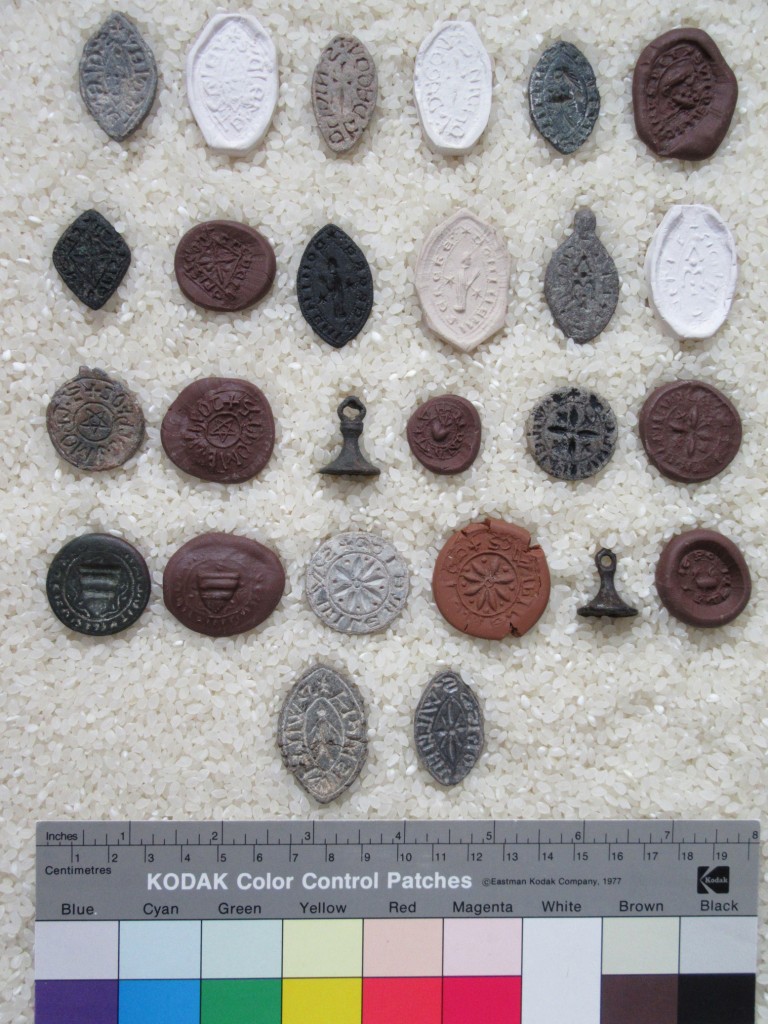
Private Collection. Set of 14 Seal Matrices accompanied by Specimens of their Seals. Photograph by Mildred Budny.
II. Co-Sponsored with the Societas Magica
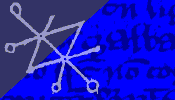 Sessions 3–5
Sessions 3–5
Session 3. Medieval Magic in Theory:
Prologues to Learned Texts of Magic
Congress Session 103, Virtually on
Tuesday, 11 May at 11:00 am EDT
- 2021 Congress Program, pages 38–39.
[Note: Our plans for this 2021 Session adapt its plan for the 2020 Congress.]
Organizer
Vajra Regan (Centre for Medieval Studies, University of Toronto)
vajra.regan@utoronto.ca
The prologues to medieval texts of learned magic could serve a variety of functions. They were a space for their authors to announce the theme of the work, to situate the work within a specific literary, philosophical, or theological landscape, and to lay special claim to the reader’s attention. Consequently, these prologues have much to tell us about the traditions and beliefs underlying certain magical texts. Moreover, because many magical texts are substantially anonymous compilations, their prologues often provide unique access to the lives and contexts of the men and women behind the parchment.
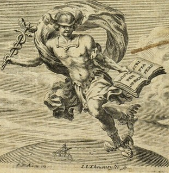
Hermes Trismegistus. Frontispiece image (Lyons, 1669) via Wikimedia Commons and Wellcome Images.
The aim of this session is to explore these still largely understudied prologues which testify to the variety of medieval approaches to ‘magic’. We are especially interested in how magic is theorized in these prologues. What insights do these prologues offer into contemporary debates about the epistemological status of magic? Moreover, what can they tell us about the social, religious, and institutional contexts of their authors and readers?
Organizer
Vajra Regan (Centre for Medieval Studies, University of Toronto)
Presider
Mildred Budny (Research Group on Manuscript Evidence)
Presenters
Vajra Regan
“The Secret in the Prologue to the Collected Treasures:
Biblical Allusions, Occult References, and Coded Language in a Thirteenth-Century Medical–Magical Lapidary”
David Porreca (Department of Classics, University of Waterloo)
“Introducing the Picatrix: The Prologue’s Balancing Act between Content and Perception”
Respondent
Phillip A. Bernhardt–House (Skagit Valley College, Whidby Island Campus, and Columbia College, NAS Whidby Island Campus)
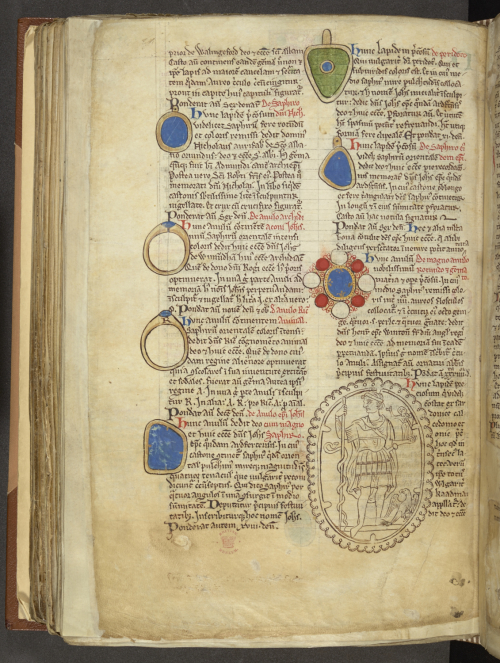
London, British Library, Cotton MS Nero D I, folio 146v. Matthew Paris’s description in the ‘Liber Additamentorum’ of the gems of Saint Albans Abbey.
This Session now has its own Page. Its Page gathers into one place the description, Abstracts, links, and illustrations for the Session. We invite you to have a look, and, if you wish, to offer Comments and feedback. Please visit Medieval Magic in Theory.
Sessions 4–5: Revealing the Unknown, Parts I–II
Congress Sessions 181 and 201, Virtually on
Wednesday, 12 May at 11:00 am and 1:00 pm EDT
- 2021 Congress Program, pages 66 and 73.
[Note: Our plans for this pair of 2021 Sessions adapt their plans for the 2020 Congress.]
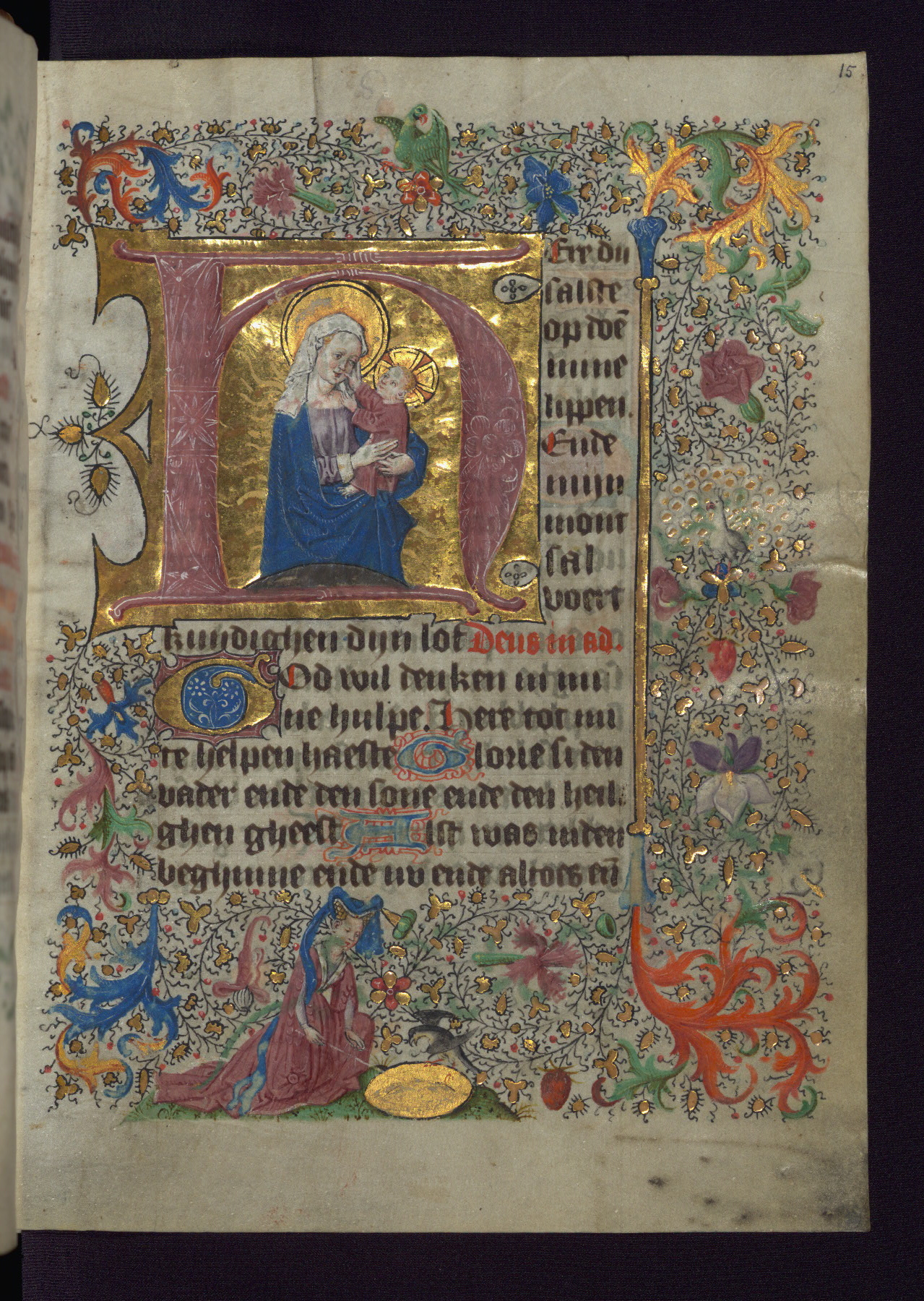
Baltimore, The Walters Art Museum, MS W.782, folio 15r. Van Alphen Hours. Dutch Book of Hours. Opening page of the Hours of the Virgin. Image via Creative Commons. At the bottom of the bordered page, an elegantly dressed woman sits before a shiny bowl- or mirror-like object, in order, perhaps, to perform skrying or to lure a unicorn.
4. Revealing the Unknown I:
Scryers and Scrying in the Middle Ages and Early Modern Period
[Note: Some last-minute changes to the Program, as of 11 May 2021, are reported here.]
Organizers
Sanne de Laat
English Department
Radboud University Nijmegen
László Sándor Chardonnens
English Department
Radboud University Nijmegen
The Netherlands
From the little boy on the lap of the priest to the astrologer physician Richard Napier, scryers have fulfilled a significant role in spirit communications throughout the Middle Ages and early modern period. That children were instrumentalized by clergy doubling as ritual magicians has been known for a long time. The activities of professional adult scryers, such as Edward Kelley and Sarah Skelhorn, are likewise well-documented. Recently, however, attention has moved to the scrying activities of medical and astrological professionals, as Ofer Hadass’s study of Richard Napier bears out. The autobiography of William Lilly and the manuscripts of Elias Ashmole suggest that early modern astrologer physicians utilized scrying in different ways from the medieval clerical underworld.
This session offers an opportunity to reassess older notions about scryers and scrying, and to engage with current research on the identity and activities of professional scryers. Topics for papers could feature, for instance, the techniques used by scryers, the necessary instruments for this craft, as well as the goals for which a scryer’s services could be used. Diachronic approaches to the topic are welcome, and papers that consider cross-cultural approaches, such as Jewish or Arabic scryers and scrying practices, are encouraged.
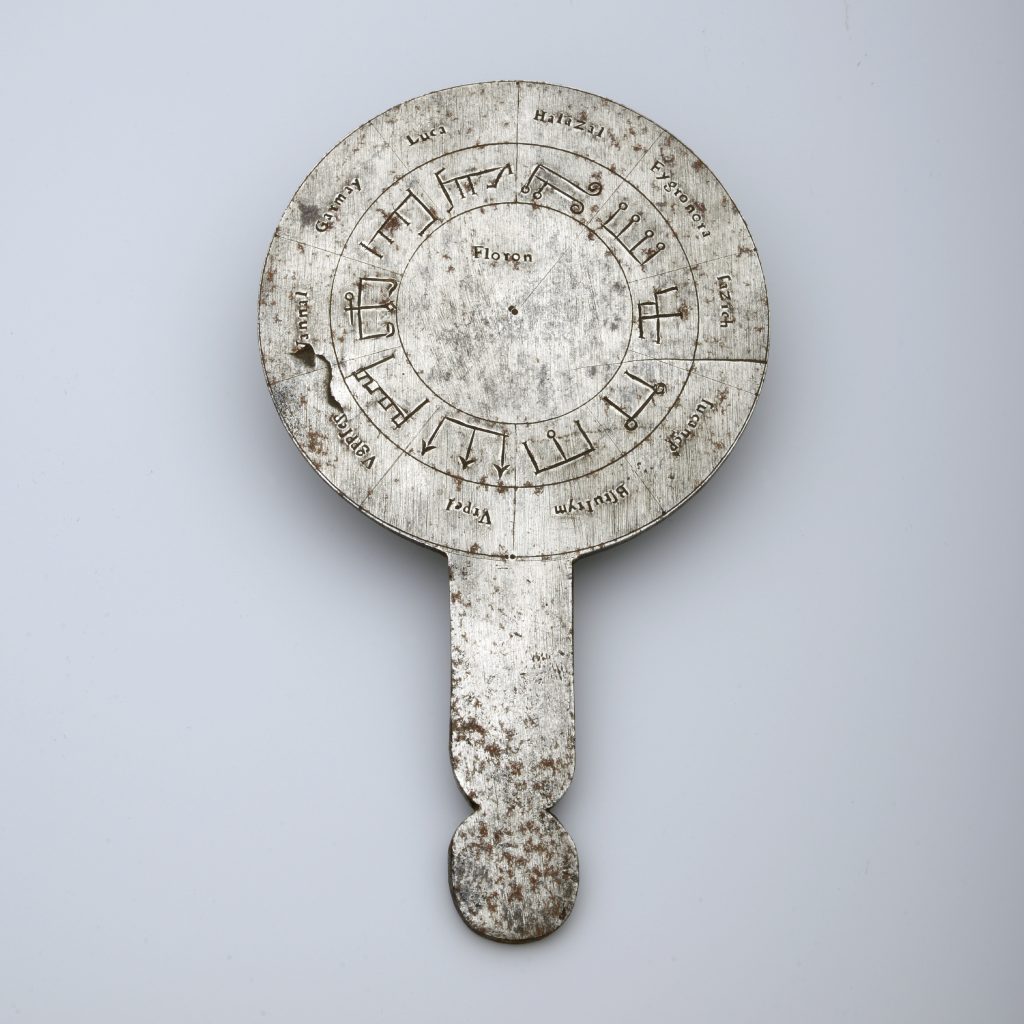
Magic mirror of Floron. Mathematisch-Physikalischer Salon, Staatliche Kunstsammlungen Dresden. Via Creative Commons.
Presider
László Sándor Chardonnens
Update: > Mildred Budny (Research Group on Manuscript Evidence)
Presenters
Hélène Colleu (POLEN Lab, Université d’Orléans)
“Alia experimentum [sic] cristalli pro puero: Scrying in a 15th-century Nigromantic Manuscript”
Daniel M. Harms (Associate Librarian, SUNY Cortland)
“Scrying with the Saints: Holy Personalities and Their Marginality in Early Modern Magic”
Sanne de Laat
“Seeing the Whole Picture: Scryers and Their Networks in Medieval and Early Modern England”
Marla Segol (State University of New York at Buffalo)
“Gender and Scrying in 16th-Century Ottoman Kabbalah”
Update: Marla was unable to attend or present her paper. It was represented by her Abstract.
5. Revealing the Unknown II:
Sortilège, Bibliomancy, and Divination
Organizer
Phillip A. Bernhardt-House (Skagit Valley College, Whidby Island Campus, and Columbia College, NAS Whidby Island Campus)
phillip.bernhardthouse@gmail.com
From earliest times, humans have sought methods to contact supernatural entities to obtain knowledge of the present or future, known as divination. In ancient and medieval contexts, two such methods that were sometimes connected were sortilège and bibliomancy: for example, the Lots of Mary, Sortes Astramphysychi, Homeric Oracles, and Virgilian Oracles.
These practices involved numerological processes to select specific passages from canonical texts in order to divine on desired topics. This session focuses on these and other methods of divination, so as to understand how textual and other authorities became invested with powers far greater than the impacts of their literary merits.
Presider
Phillip A. Bernhardt-House
Presenters
Mark Roblee (Department of History, University of Massachusetts Amherst)
“The Chaldean Oracles and the Ritual Divination Practices of the Neoplatonists in Late Antiquity”
[Note:
The following paper will not be included in the online Session. The Abstract indicates the intended scope and range.
Laurence Erussard (English Department, Hobart and Smith Colleges, Geneva, New York)
“Divination: The Carving of Runes, and Their Relationship to Poetry in Icelandic Literature”]
Michael A. Conrad (Kunsthistorisches Institut, University of Zurich)
“Unlocking the Future: Remarks on the Materiality of Tools of Sortilège”
Carole A. Myscofski (Religion Department, Illinois Wesleyan University)
“Divining the Future in Sixteenth-Century Brazil: Texts and Pretexts”
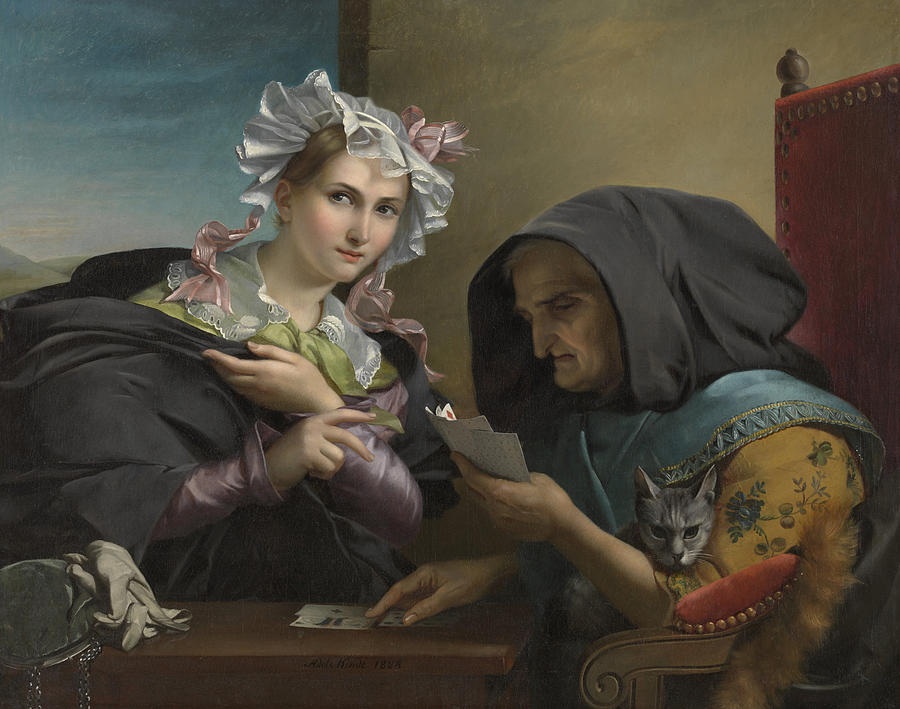
Adèle Kindt (1804–1884), The Fortune Teller (circa 1835). Antwerp, Koninklijk Museum voor Schone Kunsten. Image via Wikimedia Commons.
Note on the image shown above.
Adèle Kindt (1804–1884), The Fortune Teller (circa 1835). Antwerp, Koninklijk Museum voor Schone Kunsten. Image via Wikimedia Commons. A young lady, brightly lit and beautifully dressed, looks outward as an older woman, beneath a dark hood, holds a set of cards and looks at them with intent. The forward-facing cat, seated in the woman’s lap, gazes at beholders with raised ears and an inscrutable expression.
*****
The Program of the Congress is available. For information about the Congress and instructions for how to register for it appear on its website.
For updates, please visit this site, our News & Views, and our Facebook Page .
Also, follow our blogs:
Please Contact Us with your questions and suggestions.
*****
For our nonprofit educational mission, with tax-exempt status, donations in funds and in kind (expertise, materials, time) are welcome. Join us!

*****
